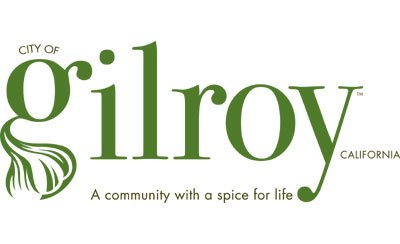Monday night the city council will discuss limiting campaign
contributions and spending to 25 cents per resident and requiring
that all donations come with a name
– no matter how small.
GILROY
Monday night the city council will discuss limiting campaign contributions and spending to 25 cents per resident and requiring that all donations come with a name – no matter how small.
Nearly all the council members seem to agree that doing away with anonymous donations of $99 or less is a fine idea even though state law allows them, but the notion of requiring candidates to adhere to a spending limit, rather than making it voluntary, as well as a contribution cap does not appear to have much support.
“That’s fine for people who can’t put money together and get a campaign going,” Mayor Al Pinheiro said.
“All that helps is someone who doesn’t have any support,” Councilman Dion Bracco said.
If the 25 cent-per-resident caps existed last fall, only one of the seven council members would be left on the dais: Councilman Peter Arellano, who raised and spent less than $12,000 when he ran in 2005.
With 51,179 residents in Gilroy, spending and contribution limits of 25 cents per resident equal $12,794. That is a far cry from the $32,017 Mayor Al Pinheiro raised last year and the roughly $25,000 that he and Councilmen Dion Bracco and Perry Woodward spent on their campaigns.
That $25,000 threshold represents the city’s current voluntary spending limit of 50 cents per resident. Accepting that cap allows candidates to raise $250 instead of $100 per person, but it does not prevent them from loaning themselves as much money as they want to – they just can’t spend more than they agreed to. If a candidate rejects the spending limit, he or she can spend their own cash until their heart’s content while only soliciting $100 contributions from others.
Councilman Craig Gartman – who will bring up the idea after Councilman Bracco mentioned it a few weeks ago – said the body needs to rein in skyrocketing campaign spending to level the playing field.
“People are raising and spending huge amounts of money to get elected, and that makes it more and more difficult for outsiders to be competitive in this arena,” Gartman said. He voted in favor of limiting campaign spending to 35 cents per resident in 2001 and again in 2003 along with the majority of the council, and then voted to raise the limit to 50 cents in 2007. Now he wants 25 cents.
“There was no way I could raise the way (Mayor Pinheiro) was raising, and I’ve got a lot of connections,” Gartman said. “That amount of money is ridiculous. Why should that even be allowed?”
Because he has the support to do it, according to the mayor and Bracco, who said limits miss the bigger picture of barring contributions of $99 or less.
Since state campaign laws do not require the disclosure of these donations, a loophole exists for anyone, including special interest groups, to stuff an unlimited number separate envelopes, each with $99 in cash and then anonymously send them to a city council or mayoral candidate. Last fall, incumbent and former City Councilman Russ Valiquette received about $3,000 in such donations, which raised his colleagues’ eyebrows even though he said he accepted the cash without any strings.
“Everyone knows what’s going on, and it’s my opinion that the citizens should know who’s supporting their elected officials,” Bracco said. “This 25 cent idea is just trying to put a limit on a popular candidate.”
Councilman Woodward – who loaned himself $21,715 last fall – also questioned the constitutionality of the limit, citing a 1976 Supreme Court case. In it, the justices ruled then that governments could limit campaign contributions but that spending money, particular one’s own money, to influence elections falls under a person’s rights to free speech.
“Campaign donations are a necessary evil,” Woodward said, adding that prohibiting nameless $99 donations would likely discourage business owners from donating who have customers of various political persuasions.
“Requiring an identity for every donation will chill contributions, but when you weigh it all out, that cost is necessary,” Woodward said.
Others worry that stricter spending limits will intensify such a chill.
“The reason we went to the 50 cent limit was the fact that it’s so expensive to a run a campaign nowadays,” Pinheiro said. “If it’s transparent enough, and if we get rid of this $99 here, $99 there, then you should be able to use that money to get your message out.”
Councilwoman Cat Tucker agreed that “it takes a lot if you want to get elected,” but she questioned the idea of further limiting candidate’s checkbooks.
“My gut instinct is that I don’t think we should be restricted as long as we follow the state laws,” Tucker said. “Why we need to be tougher than other jurisdictions – I don’t understand.”
“It’s about self governing,” Gartman said.
Gartman also wants to discuss the idea of outlawing campaign signs until 45 days before the election.
“I say 30 days,” Bracco said, adding that sign prohibitions on the Hawaiian island of Kauai mean candidates have to wave their signs along sidewalks as merchandise peddlers do here for food specials and discount cigarettes here.
“People get so sick and tired of those signs all over the place,” Gartman said.















